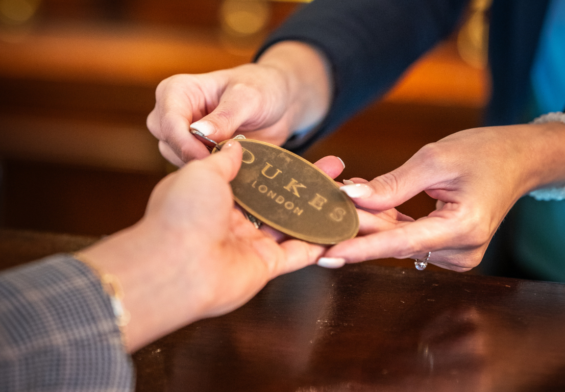Maths is one of the best skills we can teach a child and is a universal language useful for so many aspects of life. Whether managing finances, understanding the scientific world around us, cooking or even telling the time, we use maths every day from childhood into adulthood. The benefits of developing good maths skills are not to be underestimated and it all starts with instilling a passion for maths at a young age!
So how do we spark a passion for maths in our children in the early years? It all begins with making maths learning fun and engaging, through the simplicity of play. There are maths learning opportunities that can be turned into play everywhere, whether at home or out and about.
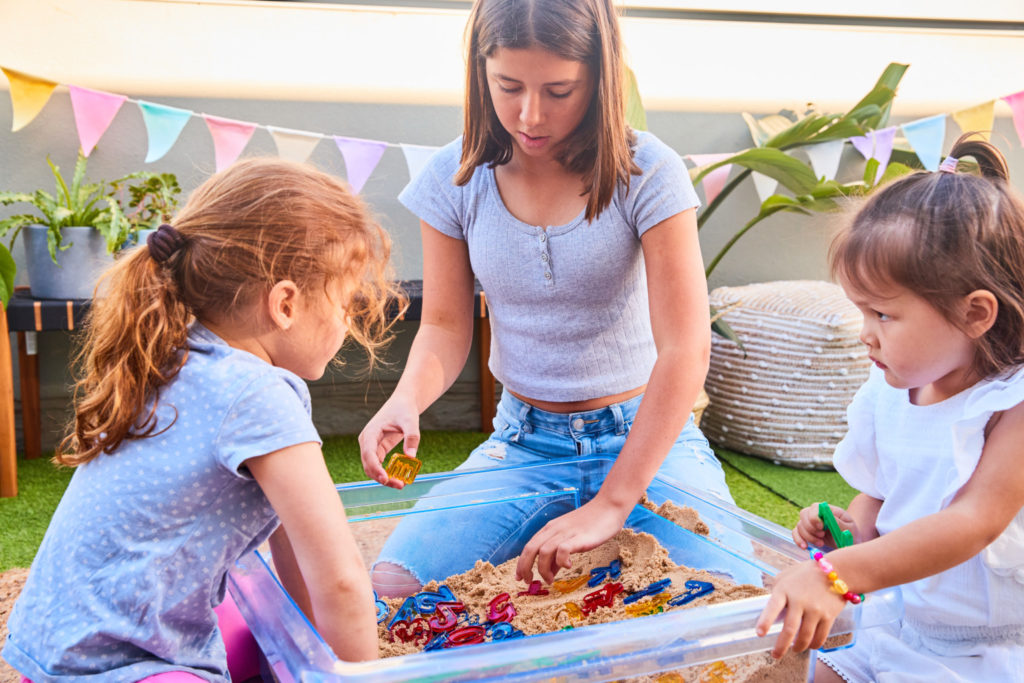
Number Recognition – The Starting Step!
Number recognition is the one of the first steps in a child’s maths journey. We start with audio recognition – teaching our children 1-10 through verbal repetition, and then counting on fingers as a visual representation. We can turn counting into a fun challenge too: How many teddies do you have? How many buttercup flowers can you find in the park? How many red cars will we see on our walk to school?
The next important step in number recognition is for children to learn the written form of numbers. Again, why not make this into a game too? When out and about, how many times can they spot the number ‘5’ today? This is a wonderful opportunity to hone their observation skills as they spot the number on front doors, car numberplates, street signs and posters as they go about their day.
Early Years Foundation Skills (EYFS) – Maths Play Ideas
Early years learning within educational settings is very much based around play. That’s because numerous studies have shown that children who have been taught through play-based learning have a more positive attitude to learning, a wider vocabulary and advanced problem solving, lateral thinking and analytical skills compared to children who have been taught in traditional direct-instruction approaches.
As parents and caregivers, we can support EYFS maths learning with play ideas at home too. Here’s a few play-based ideas to try with your child, to fuel their exciting lifelong journey with maths!
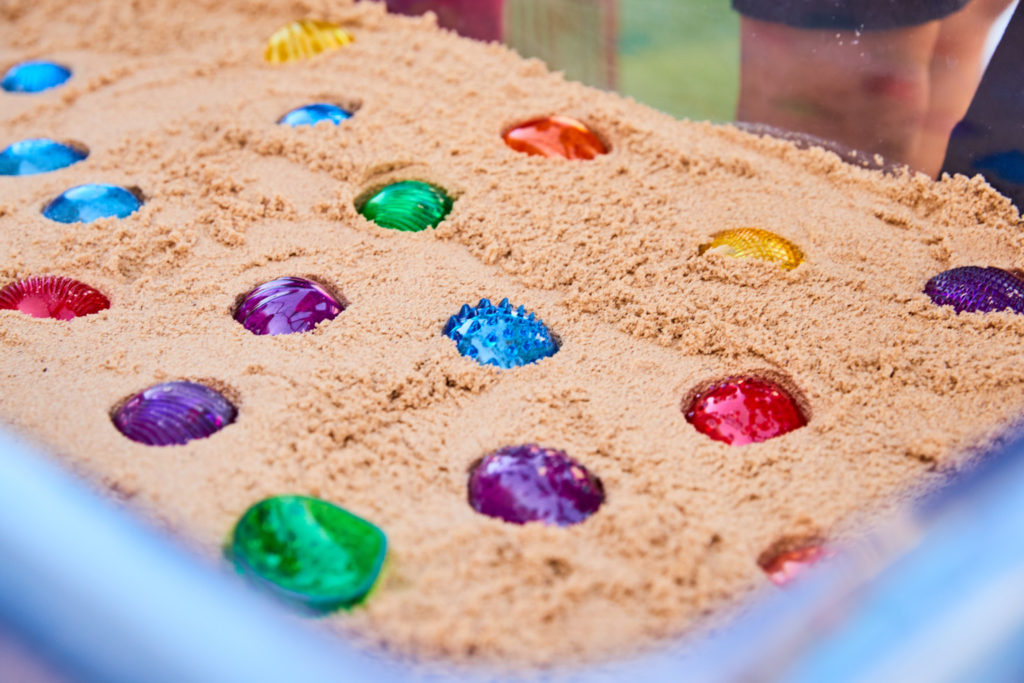
Sensory Play
Children love sensory play, so in the warmer months why not set up a sensory play experience in the garden? You can buy purpose-built play trays made from clear plastic, but if this isn’t possible, use old washing up bowls or buckets for holding water or sand instead.
If opting for water play, incorporate different vessels and a plastic measuring jug so children pour and measure the water, comparing results from the different sized containers. The ‘sink or float’ game is great fun too, and is a wonderful way to incorporate science learning while honing maths skills.
Let children experiment with lots of different objects to see if they can guess which will float or sink, and which will sink at a faster rate. Learning can be taken to another level with the aid of a notepad, timer and kitchen weighing scales for a full-scale study! This is a great opportunity to discuss maths and science concepts together, such as porosity, weight and size and how these factors might affect their results.
If playing with sand, hide themed counters, then get children to count and sort the colours. If you are reading about dinosaurs or transport, you can use these themed counters to tie in their learning experiences and interests.
This learning through play idea works equally well as an indoor activity for the colder months too. Simply replace sand with coloured rice or pasta! A nice autumn activity is to fill the activity play tray with conkers and give them tongs to find the conkers for fine motor skill development. They can then see how many they can fit into different sized jars.
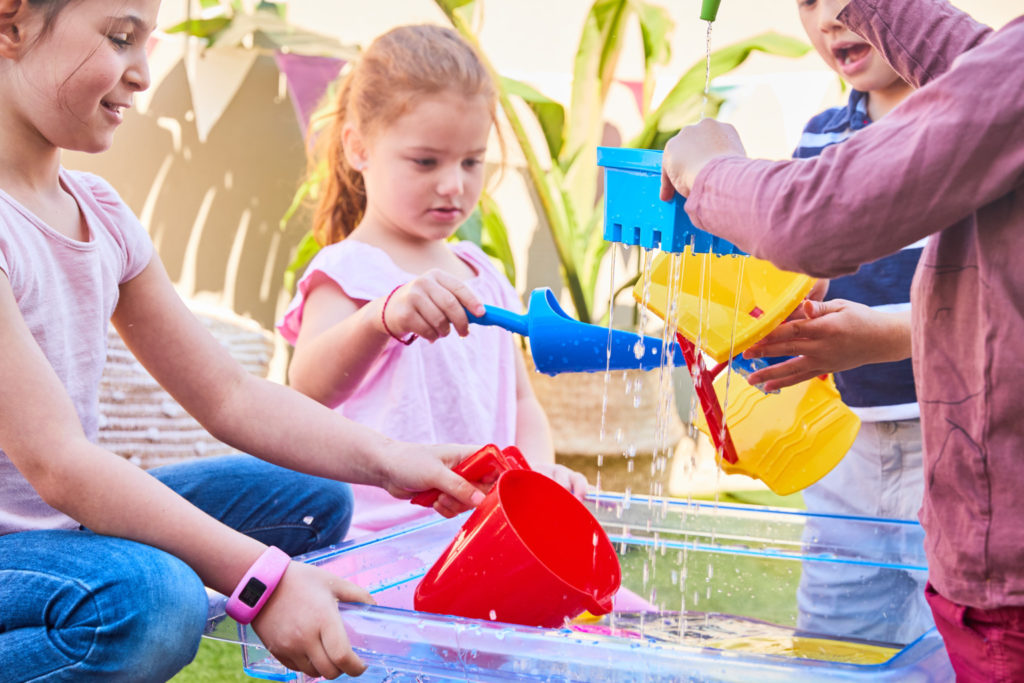
Kitchen Fun
Cooking is an essential life skill and offers a wonderful opportunity to learn about maths and science, with a deliciously rewarding treat at the end of all the hard work too!
Maths learning can begin with a visit to the supermarket. Choose a cake simple recipe and print out the ingredients list to take to the shop. Children can use the list to compare different sized packets for the correct amounts for their recipe, and even compare the prices of different brands too. They can use a calculator to add up the total as they shop, adding to the maths learning experience.
Once home, the cooking magic can begin! Have children count, measure, mix and enjoy the fun of it going from liquid to being baked. Use this time to explain processes and results to add to the science element of learning, whilst helping develop language skills and understanding.
And Finally
Remember to make learning through play activities fun and creative; we want our children to have a positive experience of education so they are keen to keep learning! Keep activities relaxed, and let children lead the way with just simple guidance from you. If you can link learning experiences into their interests, this is even better, and is a great way to keep the enthusiasm going! Maths is a fascinating subject with so many opportunities for fun, so let’s help our children experience the great joy of early years maths learning…
About the expert
Heather Welch is a play advocate, educator, marketer and current International Brand Manager at Edx Education. Edx Education is a leading educational toy brand supplying toys to schools around in over 90 countries, and to UK parents at shopedx.co.uk.
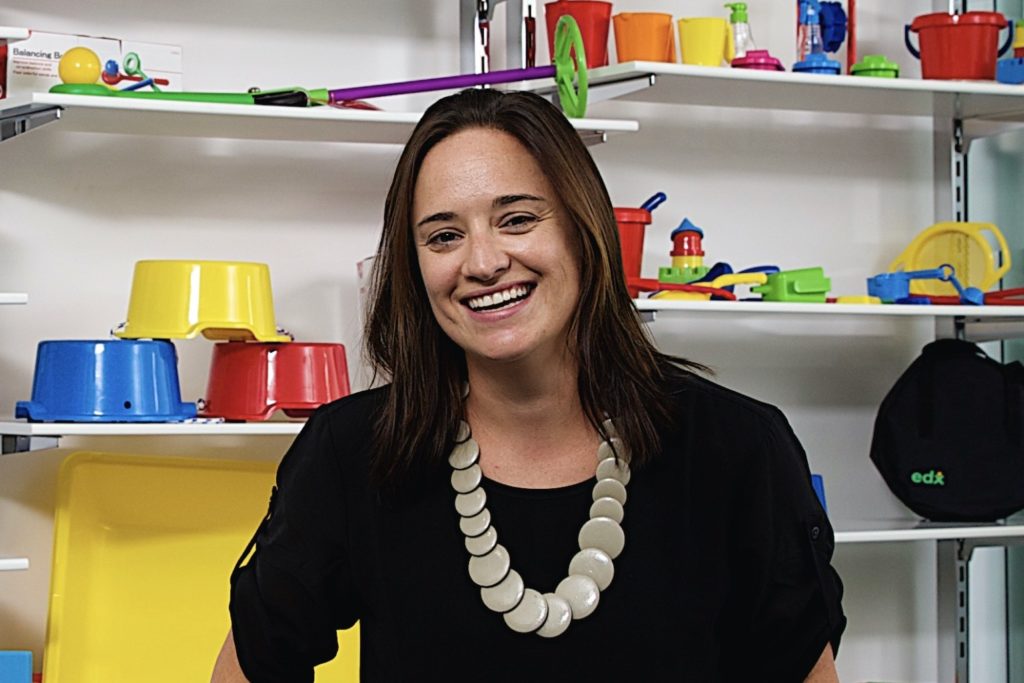
Heather has lived and worked all around the world: in Australia, Singapore, UAE and now the UK. Heather completed her Masters in Business & Technology, and originally trained as a primary school teacher.
Right now, she develops educational toys for children to spark their imagination and learn from one another. Heather is the Play Ambassador for The Genius of Play and a Trustee of a UK charity ‘Gecko on the Move’ providing educational opportunities to children around the world.
Heather currently hosts a podcast, ‘Education Experts with Edx Education’. Education is evolving in this unconventional time so join Heather Welch, Edx Education, chatting with Teachers, Psychologists, Parenting and Teaching Influencers, Authors, Creatives and so many more talented experts to keep up with the trends and what’s happening around the globe.
Heather has written many ‘learning through play’ articles and has given advice on the subject around the world. Edx Education have a play blog on the website, podcast, games and videos and free downloadable resources for home learning in the Teachers/Parents section over at edxeducation.com. Let’s play and learn together.

